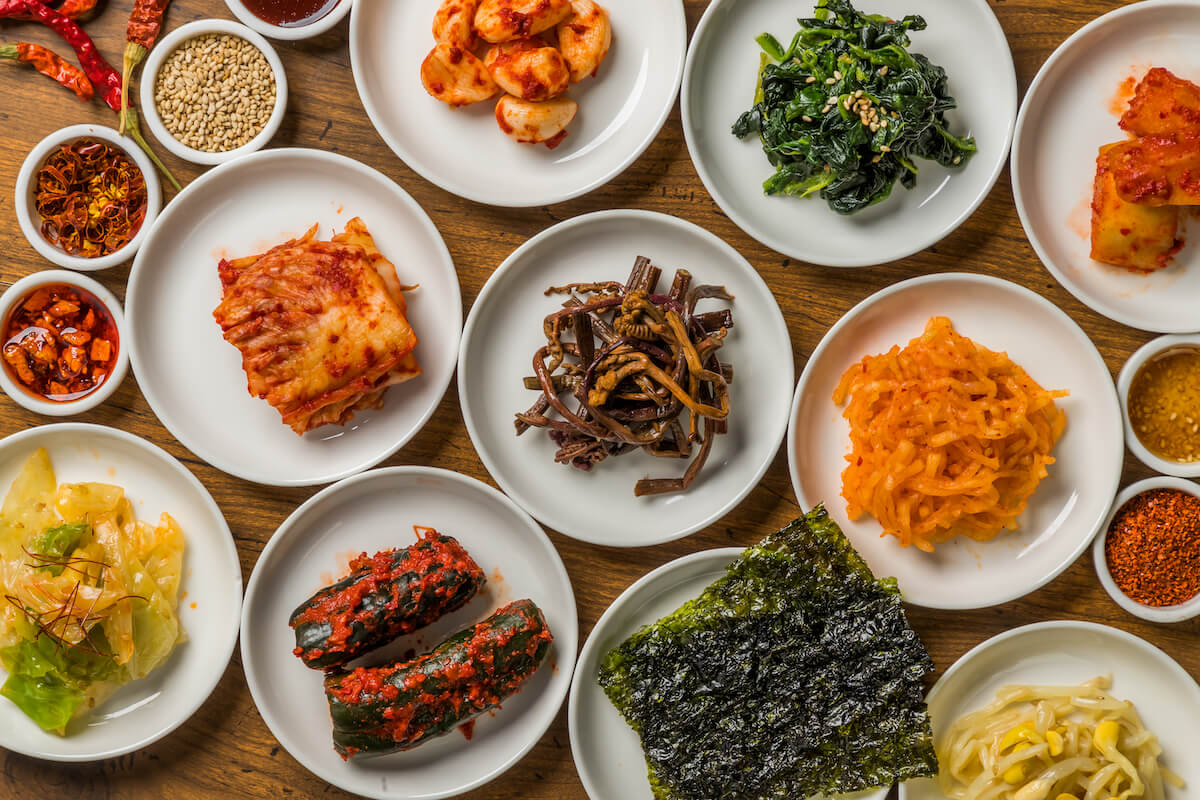South Korea Cuisine and Entertainment
South Korean cuisine is renowned for its vibrant flavors, variety of side dishes, and emphasis on fresh ingredients.
Here are some highlights of South Korean cuisine:
- Kimchi: Kimchi is a staple of Korean cuisine and consists of fermented vegetables, most commonly cabbage, seasoned with chili pepper, garlic, ginger, and other spices. It is served as a side dish with almost every meal.
- Bulgogi: Bulgogi is a popular Korean dish made of thinly sliced marinated beef that is grilled or stir-fried. It is known for its savory and slightly sweet flavor. Bulgogi is often served with rice and accompanied by various side dishes.
- Bibimbap: Bibimbap is a mixed rice dish that typically includes steamed rice topped with sautéed vegetables, sliced meat, a fried egg, and gochujang (a spicy red pepper paste). The ingredients are mixed together before eating.
- Samgyeopsal: Samgyeopsal refers to grilled pork belly slices served with lettuce wraps and various condiments. It’s a popular dish for grilling at the table, often enjoyed with friends and accompanied by soju (a Korean alcoholic beverage).
- Korean BBQ: Korean BBQ, or “gogi-gui,” is a dining experience where guests grill a variety of meats, such as beef, pork, and chicken, at their table. It’s accompanied by an assortment of side dishes, sauces, and lettuce wraps.
- Jjajangmyeon: Jjajangmyeon is a popular Korean-Chinese noodle dish. It features thick wheat noodles topped with a savory black bean sauce and various ingredients like diced pork, onions, and vegetables.
When it comes to entertainment, South Korea offers a vibrant cultural scene and a range of activities.
Here are some popular forms of entertainment in South Korea:
- K-Pop: South Korea’s pop music industry, known as K-pop, has gained global popularity. You can attend live performances, visit entertainment company buildings, and even take part in K-pop dance or singing classes.
- K-Dramas: Korean dramas, or K-dramas, have a massive following worldwide. You can explore the filming locations of popular dramas, attend fan events, and visit themed cafes or shops dedicated to K-dramas.
- Traditional Performances: Experience traditional Korean performances such as “Nanta” (a non-verbal musical comedy involving percussion instruments), “Bukchon Hanok Village” cultural shows, or traditional music and dance performances at venues like the National Theater of Korea.
- Nightlife: South Korea’s major cities offer a vibrant nightlife scene. Areas like Hongdae and Gangnam in Seoul, and Haeundae in Busan are known for their clubs, bars, and live music venues.
- Temple Stays: For a unique cultural experience, you can participate in a temple stay program at Buddhist temples. These programs provide an opportunity to learn about Buddhist practices, meditate, and experience the serene temple environment.
- Shopping: South Korea is known for its shopping districts and markets. Explore areas like Myeongdong in Seoul or Dongdaemun Market, where you can find a variety of shops, street food, and trendy fashion items.
These are just a few examples of South Korea’s rich cuisine and entertainment offerings. The country has much more to offer in terms of cultural experiences, outdoor activities, and historical sites.
South Korea Cuisine and Entertainment

Comment (0)